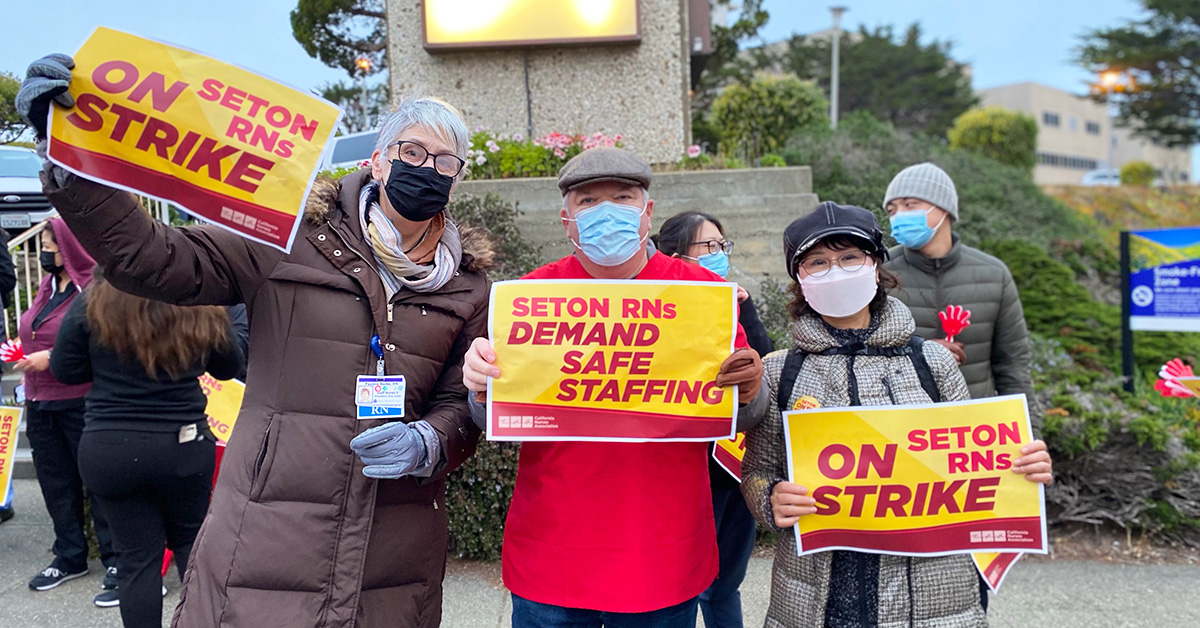Seton nurses hold one-day strike

By Rachel Berger
National Nurse Magazine - January | February | March 2021 Issue
AHMC Seton Medical Center nurses held a one-day strike on Mar. 30 to demand that hospital management adheres to California’s safe staffing law, which sets the number of patients a nurse can safely care for according to the unit and patient acuity.
“Throughout the ongoing Covid pandemic, nurses have had to fight management for safe staffing,” said Michelle Kubota, a registered nurse at Seton Medical Center. “We know that increasing patient loads lead to poorer outcomes for our patients and causes moral injury and distress in nurses. Our patients deserve better and our communities deserve better. As union nurses and patient advocates, we will continue to hold AHMC accountable to the needs of our communities and demand they prioritize safe patient care over profits.”
Nurses say that over the last two years, they have seen more than 65 nurses leave the hospital because of the poor working conditions. Nurses note that in addition to repeatedly violating safe staffing laws, the hospital is failing to provide resources to support nurses. This includes a lack of nursing assistants, clerks, secretaries, and other personnel who can carry out non-medical functions. When nurses are left without these resources, they are forced to pick up that work, in addition to their nursing duties. California Nurses Association represents 300 nurses at Seton.
“Because we have no ancillary staff, when I am caring for Covid patients I not only have to address their medical needs but I also need to empty the garbage, clean up the rooms, deliver the food, assist my patients to the restroom, and answer calls from their family and friends,” said Kubota. “Families don’t understand why they may not hear back from me for hours after they call. It is extremely frustrating and distressing for them, and I feel horrible because I understand their distress. But we are so short-staffed that, far too often, I am caring for one patient when I may hear an alarm go off in another patient’s room — but I am not in a position to stop what I am doing and run over there to see what is happening. When we have no support staff to check on that patient, we have no idea what is happening and delays in care hurt our patients. AHMC must do better to support the nurses and the patients.”
Rachel Berger is a communications specialist at National Nurses United.